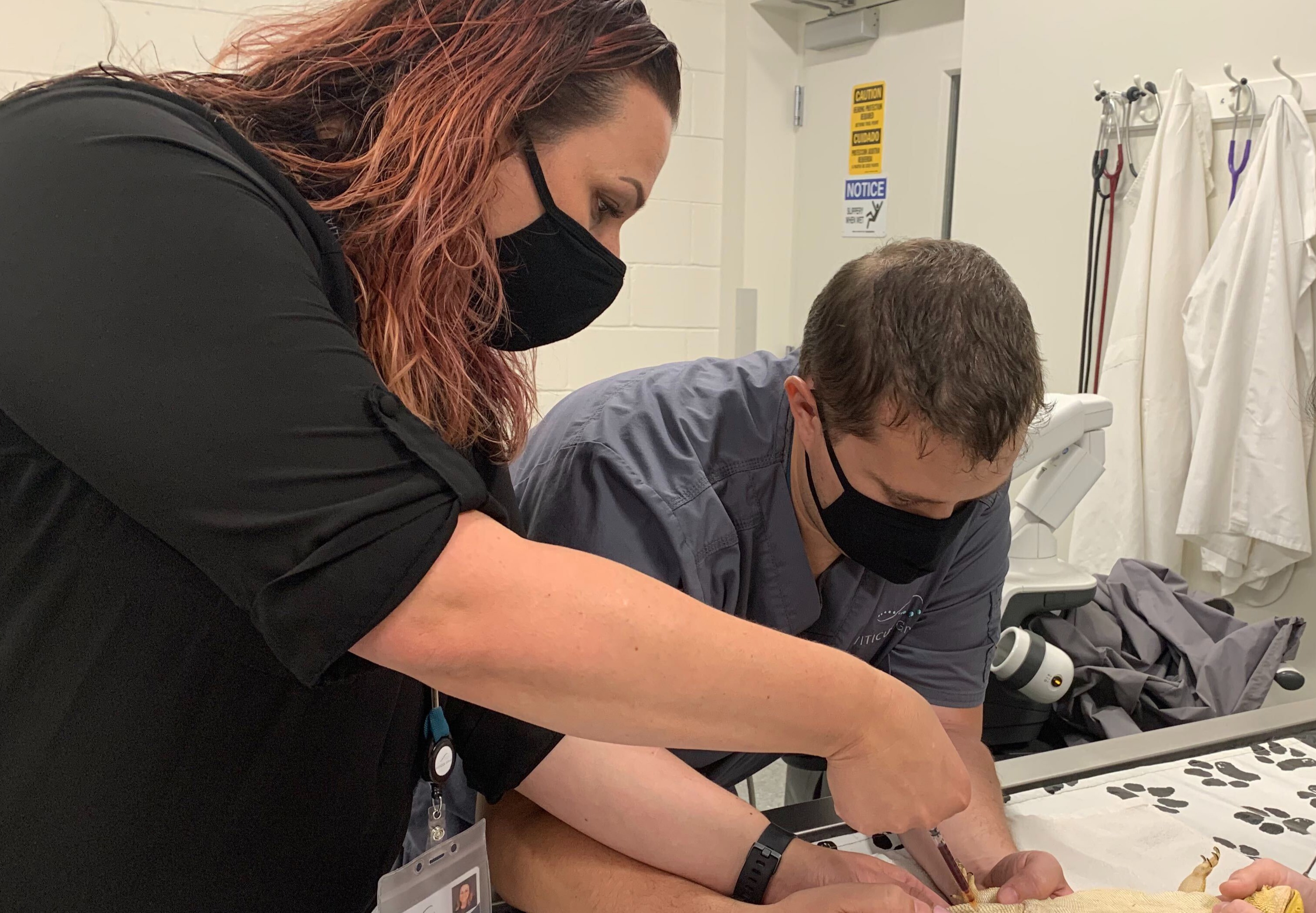The Window into the Body: Ophthalmology in General Practice
Improving eye care and updating equipment in your veterinary practice can mean earlier disease diagnosis and better patient care—right before your...
2 min read
Abby Crimm : March 12, 2020 11:00:00 AM PDT

What kinds of tools and assets is your practice using to monitor patients during anesthesia? Is there more you could do to ensure an optimal patient outcome?
Sometimes, just saying the phrase “blood gas analysis” makes some veterinary professionals tense up. The reason it may cause your blood pressure to spike is that we usually run blood gas analyses during high-stress cases when a patient is in trouble.
Amanda Shelby, a veterinary technician specialist in anesthesia and analgesia, in this Quick Cup of Knowledge interview recognizes that although blood gas analysis can be intimidating, it adds tremendously to the overall knowledge we have of a patient. What you usually see on the monitor is just the tip of the iceberg.
Why Blood Gas
When monitoring a patient, what you see on the screen is a relatively surface-level view of how your patient is doing. An analysis of blood gas gives you a “behind-the-scenes view” of what is happening at the cellular level.
It’s worthy to note that in critical patients, there could be discrepancies between what you see on the screen and the results of the blood gas analysis. Because the analysis is more in-depth and precise, it allows you to look at the whole picture and take the indicators on the monitor in context.
Blood gases provide more accurate information about acid-base and oxygen status than the chemistry panel. In the past, blood gas analysis and interpretation was generally done in universities and large hospitals because the technology wasn’t cost-effective for private practices.
Ms. Shelby believes that today, the availability and relatively inexpensive units used for blood gas analysis make it an investment worth making.
Most Critical Tools
For practices or individuals looking to add blood gas analysis to their portfolio of patient monitoring, we recommend reaching out to the company you get your blood chemistry service from. They most likely have a blood gas analyzer you can use.
Apart from that, all you’ll need are lithium-heparin syringes and someone who is practiced in hitting arteries. Collecting venous rather than arterial blood can lead to inaccurate results.
What Kinds of Cases Need Blood Gas Analysis?
Practices that take more high-risk cases or a heavy critical care load will definitely benefit from routine use of blood gas analysis as part of the monitoring protocol.
For example, where blood-gas analysis is especially useful are critical cases like primary or secondary respiratory disease with oxygenation treatment, septic abdomen, and pneumonia.
Even with the simplest equipment, like a thermometer and a stethoscope, there’s no replacement for a person monitoring the status of a patient under anesthesia. Whether or not your practice decides to include a blood gas analyzer in your toolbox, the most important thing a practice can do for patients when it comes to pain management, according to Shelby, is a dedicated and caring anesthetist.
Browse CE courses in topics including anesthesia at our WVC Academy website.
Subscribe to our YouTube channel or check out our Resource Library full of great podcasts, videos, and digital downloads!
Disclaimer
Content may contain advertising and sponsorships. Advertisers and sponsors are responsible for ensuring that material submitted for inclusion is accurate and complies with applicable laws. We are not responsible for the illegality of any error, inaccuracy, or problem in the advertiser’s or sponsor’s materials.
Advertising material and/or opinions are not are not a reflection on Viticus Group.

Improving eye care and updating equipment in your veterinary practice can mean earlier disease diagnosis and better patient care—right before your...

Happy pets are just good business. If you're unsure if becoming Fear Free Certified is worth the investment, look no further.

During National Veterinary Technician Week, we honor all the selfless veterinary technicians and assistants who are often the lifeblood of a clinic...